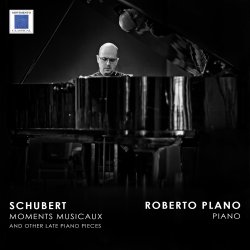
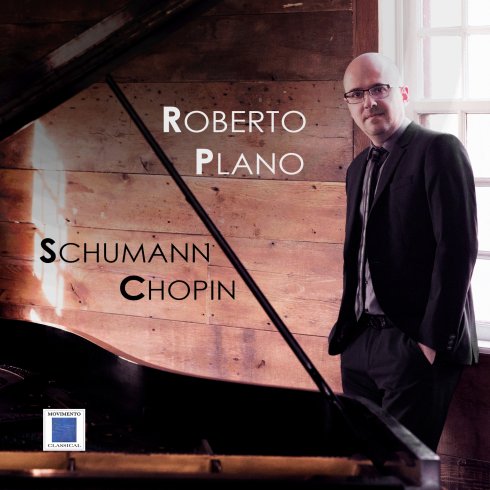
l'm increasingly drawn to art. Now I have come to a crossroad, and I am frightened by the question: where do I go? lf I follow my genius, it wi/1 lead me to art, and this is, I believe, my right way [...] Can there be a man's greater concern than that of an unhappy future, insipid and with no way out, that he prepared himself? [...] Consider me from now on as a person who prefers happy poverty in art to unhappy poverty in jurisprudence . This is what Robert Schumann wrote lo his mother in 1830, the year thai marks the beginning of a painful and tormented awareness, but stronger !han his mother's will lo push the life of her son towards the degree in law. After the death of Beethoven and Schubert, Schumann is one of the key figures in piano literature, especially in the decade 1830-1840, the years when the Sonata in G minor Op. 22 and the three Romances Op. 28 were composed. The Sonata Op. 22, composed in 1833-38, was published in 1839. 1833 marks the first serious crisis of neurasthenia for the composer, who, also because of !ragie family losses, falls into a deep apathy: / suddenly had the most atrocious thought that a man can conceive, the most terrible with which heaven can punish him, the thought of losing my mind. lt seized me with such violence that no consolation, no prayer, no prank was effective in destroying it. This anguish followed me everywhere. I missed my breath at this thought. In 1838 the German composer also compieteci the Concerto senza orchestra Op. 14, the future Third Sonata, perhaps the piece the most representative of this existential drama. The initial movement of the Sonata Op. 22 is also feverish, restless (As fast as possible), but here everything takes piace with an expressive centering unknown lo other sonatas. The following ecstatic movement is given, as in Op. 11 (his Sonata No. 1), by a pianistic revival of a Lied of 1828 (/m Herbste, by Kerner); an eccentric Scherzo with a burlesque character and a lively, classic (in its harmonic lines) Finale follows. Actually, Op. 22 would have been compieteci shortly after the first, Op. 11, if Schumann had not felt the need lo write a new ending (the one now commonly performed). In fact, il seems thai Clara Wieck, the pianist who Robert married in 1840, found the first final too difficult, very extensive and problematic. This is the reason why the composition has a higher opus number. The German musician writes here his shortest and most concise sonata, which does not allow his passionale potential lo fade, though. In fact, this is generally his most appreciated and performed sonata. lts year of publication corresponds lo the year of composition of another famous work by Schumann, Romances Op. 28. The Romanza is one of the most popular romantic forms (for example the 48 Romances without words by Mendelssohn); in the eighteenth century the Romanza was typically a musical composition far voice and accompaniment, of variable structure but mostly sentimental character. Very suitable , in this first phase, far private executions. During the nineteenth century its fortune increased considerably, lo the point that it is welcomed among the operatic forms but also, as in our case, among the instrumental ones. Schumann did not devote much time lo this genre, although he loved il very much. Only in the summer of '39, in the hope of being able one day to publish pieces under his name combined with thai of his girlfriend, he examines some of Clara's compositions; he dis cards the ldylls, which he considers lo be lacking in completeness, albeit al times passional e, but he is fascinated by a Romanza (one of the three contained in Op. 11, dedicated lo him): Your Romance has announced something new to me: that we wi/1 be husband and wife. Every one of your thoughts comes out of my soul and you inspire ali my music. We must not change anything to the Romanza... 1839 was very difficult far Schumann; the second half of the year, in fact, was almost totally unproductive. Only the imminent return of Clara from Berlin, where her mother had taken her, led lo a new explosion of activity, the main fruii of which was the series of the three Romances Op. 28. They are a small cycle, but il was very much considered by its author. The first Romanza is a wonderful Scherzo with Trio. The second takes up the tonality of the previous trio and is, among the three, certainly the most beloved (nowadays often performed as an encore); Clara, fascinated by its beauty and probably by the genius with which the song's theme is echoing in the various registers of the keyboard, called il «a duet of love». The third and final roman za, finally, has a complex form, full of contrasting episodes and longer than the previous ones. Schumann, not only a composer but also a music critic, wrote in 1831 in the Allgemeine Musik Zeitung: «Gentlemen , lift your hats, a genius...», thus welcoming his brother in art, Fryderyk Chopin. Born in Warsaw in 1810 but emigrated lo Paris in 1830 due lo the difficult politica! situation al home, Chopin is one of the greatest romantic composers along with Schumann. In the French capitai Chopin frequents the most prestigious cultura! salons; in one of them he meets the writer George Sand, who will play an important raie in his life. On the advice of Sand herself, Chopin will temporarily move lo the island of Majorca to try lo improve his precarious physical conditions. This is a very difficult and tormented period far the Polish composer, a period in which the amazing 24 Preludes Op. 28 were born. They are difficult lo date, written most likely between 1831 and 1839. Chopin's cyclic idea is not limited lo tonai relations (the cycle repeats the systematic pian of Hummel preludes, proceeding with major and relative minor tonalities , according lo the progressive arder of the sharps and regressive of the flats); in the collection one can see combinations and alternations of the various pieces based on tension contrasts and relaxation, speed and slowness, etc. Taken individually , they represent flashes of genius, capable at times of the most delicate sweetness, then suddenly of the most mysterious and dark depth. Although the term prelude was usually used to indicate a composition that actually introduced another one (let's think of Bach's Preludes and Fugue, far example), Chopin challenges every tradition by composing something absolutely innovative and originai that makes every single Prelude a piece on its own. Their publication, which took piace after his return to Paris in 1839, had a big impact in the musical world of the time: they lacked a well-defined form and challenged any kind of convention relating to the length of the pieces (no one exceeds 89 bars in length). Several recordings have immortalized this great masterpiece, starting with the historic recording by Alfred Cortot. And Schumann's words, which describe them so well, also remain historical: I have designated the Preludes as strange. I confess that I imagined them to be quite different, and conducted like his studies, which are more majestic. Jt's the apposite: sketches, in each of the pieces one can see written with delicate pearly miniature: "Chopin wrote it"; one can clearly recognize him by the pauses and by the rushing breath. He is and remains the most daring and proud poetic genius of our time.

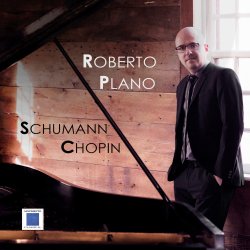
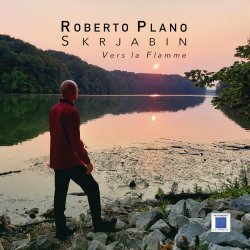
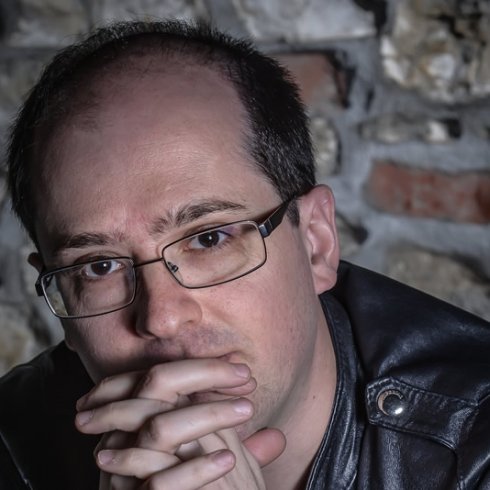
Roberto Plano
Born in Varese in 1978, Roberto Plano imposed himself on the attention of the musical world with the victory of the prestigious Cleveland International Piano Competition. With the affirmation and the prizes obtained at the Honens International Piano Competition and at the 12th Van Cliburn International Competition he began his concert career that saw him participate in numerous tours throughout North America, where he participates in recitals in more than 30 states in the USA and have led him to play in the studios of the major American, Canadian and Italian radios, such as NPR (Performance Today) in Washington, WGBH in Boston, WNYC in New York, WFMT radio in Chicago, CBC in Toronto, BBC Radio 3 (London), RadioRai 3, Radio Classica, Radio Vaticana; his debut recitals at the Chopin Festival in Poland and at the Herculessaal in Munich were broadcast by Polske Radio 2 and from Bayern 4 Klassik. He has performed in some of the most important Italian and foreign concert halls and for prestigious Italian and international festivals. In his career he has played as a soloist with prestigious orchestras in Italy and abroad. In addition to the awards obtained at Cleveland, Van Cliburn and Honens and the victories in Italy of Treviso, Togni and Scriabin he was awarded at the Iturbi Competition in Valencia, at Sendai International Music Competition, dublin international piano competition and geza and geza anda zurich. The documentary Encore, of which he is one of the protagonists, has been broadcast throughout North America, Europe and North Africa; Philippe Entremont selected him for a television broadcast related to Mozart's music, broadcast in Japan by NHK, and he played for the satellite television channels Mezzo and Arte, as well as for the Rai and Mediaset networks. Very active also in the field of chamber music, he has collaborated with numerous string quartets, including the Cremona Quartet, the Takacs Quartets, Fine Arts, St. Petersburg, Jupiter, ENSO, Vogler, Henschel, the First Parts of the Teatro alla Scala and with soloists such as Enrico Bronzi, Gabriele Cassone, Ilya Grubert, Giovanni Scaglione and Amiram Ganz and with the jazz pianist Paolo Paliaga, with which he recorded a record – Inspiration – dedicated to the fusion between classical and jazz music. The album recorded for the Concerto and dedicated to Andrea Luchesi – a world first recording – has been reviewed with the highest rating (5 stars) by the monthly MUSICA. Already a member of the jury in several competitions (including the Singapore Piano Competition) he was invited to be part of the commission of the Cleveland International Piano Competition, which was held in the USA in August 2013. As a lecturer he has held numerose master classes in important institutions. He is President of the Musical Association "Alfred Cortot", founded in 2011 with his wife Paola Del Negro, with whom he plays permanently in a piano duo.
